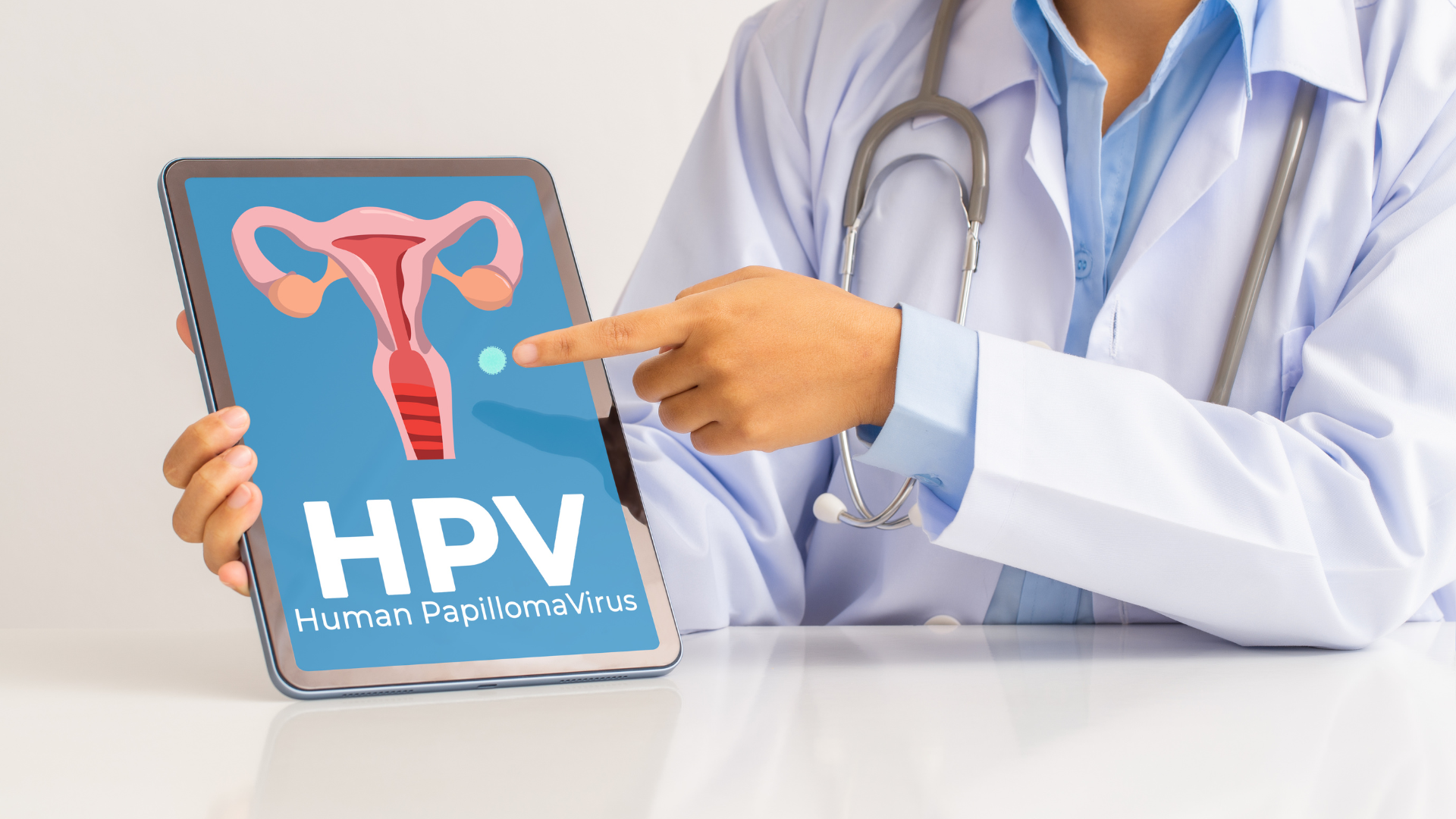HPV (Human Papillomavirus) is a common virus. It can cause health problems, and one of the most serious is cervical cancer. This article will explain how HPV and cervical cancer are connected and what you can do to protect yourself.
What is HPV?
Human papillomavirus is a virus that affects the skin and moist areas of the body, like the mouth and genitals. There are many types of HPV. Some types are harmless, but others can cause health problems like warts or even cancer.
How is Human Papillomavirus Spread?
Human papillomavirus is spread through skin-to-skin contact, often during sex. Anyone sexually active can get human papillomavirus, and most people will have it at some point in their lives. Many people with human papillomavirus don’t even know they have it because it often doesn’t cause any symptoms.
HPV and Cervical Cancer Risk
Certain types of human papillomavirus can cause changes in the cells of the cervix, the lower part of the uterus. If these changes aren’t treated, they can turn into cervical cancer over time. This is why the human papillomavirus and cervical cancer risk is something you need to be aware of.
How Does HPV Cause Cervical Cancer?
When someone gets a high-risk type of human papillomavirus, the virus can make the cells in the cervix change. These changes can take years to develop into cancer. That’s why it’s important to get regular Pap tests. Pap tests can find these changes early, before they become cancer.
How to Lower Your Risk
There are steps you can take to lower your risk of getting human papillomavirus and cervical cancer:
- Get the HPV Vaccine: The vaccine protects against the types of human papillomavirus that cause most cases of cervical cancer.
- Regular Screenings: Getting regular Pap tests and HPV tests can help catch problems early.
- Use Protection: Using condoms during sex can lower your risk of getting human papillomavirus, though it doesn’t completely prevent it.
- Don’t Smoke: Smoking weakens your immune system and makes it harder for your body to fight off human papillomaviru.
Common Treatments for HPV-Related Problems
While there’s no cure for human papillomavirus there are treatments for the problems it can cause:
- Imiquimod (Aldara): A cream that helps your immune system fight human papillomavirus.
- Podofilox (Condylox): A gel that treats warts caused by human papillomavirus.
- Sinecatechins (Veregen): An ointment made from green tea extract that treats genital warts.
- Cryotherapy: A treatment where the doctor freezes off warts caused by human papillomavirus.
- Laser Therapy: A treatment that removes abnormal cells in the cervix to prevent them from turning into cancer.
These treatments can help manage the effects of HPV, but the best protection comes from vaccination and regular check-ups.
Staying Safe and Healthy
Knowing about HPV and how it can lead to cervical cancer is the first step in protecting yourself. Here’s what you can do:
Get the HPV Vaccine
The HPV vaccine is safe and effective. It’s usually given to boys and girls when they are 11 or 12 years old, but older teens and adults can get it too. The vaccine can prevent the types of human papillomavirus that most often cause cervical cancer.
Go for Regular Pap Tests
Pap tests check for changes in the cells of your cervix. Regular tests can catch problems early before they turn into cancer. Your doctor will tell you how often you should have these tests.
Practice Safe Sex
Using condoms can lower your risk of getting HPV. While condoms don’t offer full protection, they are still a good way to reduce the risk.
Quit Smoking
If you smoke, try to quit. Smoking weakens your body’s ability to fight off HPV and increases your risk of cervical cancer.
Understanding the connection between HPV and cervical cancer is important for staying healthy. By getting vaccinated, having regular screenings, and practicing safe sex, you can lower your risk. If you have any concerns or questions about HPV and cervical cancer risk, talk to your doctor. They can help you make the best choices for your health.
FAQs
- What is the connection between human papillomavirus and cervical cancer?
- Certain types of human papillomavirus can cause changes in the cervix that may turn into cancer over time.
- How can I protect myself from HPV?
- Get the HPV vaccine, use condoms, and have regular Pap tests and HPV tests.
- Can HPV be cured?
- There is no cure for human papillomavirus, but the body often clears the virus on its own. Treatments can help manage symptoms.



